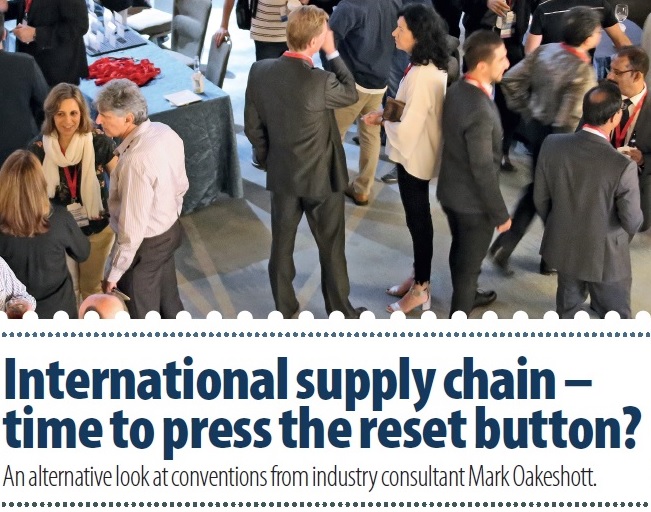An alternative look at conventions from industry consultant Mark Oakeshott.

In early October, the largest annual gathering of the international moving industry will take place at the International Association of Movers Convention (IAM) in Washington, DC.
Yet despite the best efforts of the organisers to provide meaningful education sessions, the real action will again take place in the hotel lobby, corridors, bars and meeting rooms with moving companies discussing exchange of business or what is commonly called “reciprocity”. The tone of these meetings will range from friendly to ugly and the excuses for failing to live up to promises are legendary.
The concept of reciprocity originated decades ago, when independent moving companies largely working on an "agent-to-agent" basis and had direct contracts with major corporate clients. Decision making at those corporate clients was very decentralised, meaning moving companies in many smaller markets would have local contracts with those same corporate accounts as well as local corporate customers. With globalisation in its infancy, shipments were larger, profit margins were attractive and competition less intense. This allowed moving companies at both ends of an international move to provide a quality service. Therefore, the concept of a reciprocal business relationship was born, based upon a shared corporate client, a strong personal relationship, or both.
Fast forward 40 years and the industry landscape has changed dramatically. Corporate clients have centralised procurement in their home country. Those corporate relationships are now largely controlled by relocation management companies and moving companies are relegated to their vendors. International moving has become increasingly commoditized, price is now a critical buying factor, shipment sizes are smaller and competition more intense. Yet many international moving companies still hang onto a supply chain model of selecting an agent based upon their ability to reciprocate - even though the actual profitability of that reciprocal shipment is often very small.
Two things here. Firstly, I'm pretty sure that your customer would rather you focus on value and service in your supply chain decision making. Why buy sea freight based upon these criteria and not origin and destination services? Maybe because you don't know the captain of the ship? Secondly, as I have seen first-hand, the financial reality is that a relationship with a service provider that is price competitive, has great service quality and very low claims, is often-times far more profitable than a relationship with a higher priced, inconsistent service provider, that is able to generate business back.
So this year, my advice is to cut short some of those endless reciprocity discussions at the IAM Convention. Instead, accept some of those invitations to meet with a few less familiar names. You may just find that they are better able to meet some of your wider needs in an ever-changing industry. Your customer service scores, claims experience and bottom line may also be better off for it.
See you in October!
Visit Mark's website at
: http://oakeshottconsulting.com Click here to read the next editor's pick.